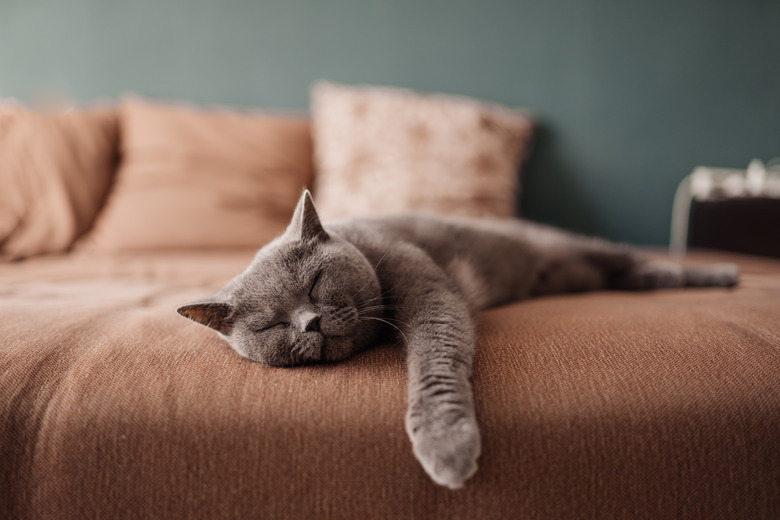Is Cat Hair Harmful?
Cat hair doesn't harm people, but individuals can be sensitive to cat excretions. The sources of allergens that make some people miserable are their dander, saliva, and urine, not the cat's fur. Bathing and grooming your cat reduces dander, shedding, and saliva residue. With regular housekeeping and measures to reduce exposure, it's possible to live with a cat — or to accommodate guests — with less risk of triggering allergies. People who experience asthmatic reactions or any difficulty breathing should follow their doctor's instructions.
Safely controlling cat fur and dander
Safely controlling cat fur and dander
You might not appreciate it when the cat sheds on the sofa or you find cat hair all over your favorite sweater, but cat hair doesn't pose a health risk. For someone with unpleasant allergy symptoms, the sight of cat hair might be distressing — and where there's fur, there's dander. Dander is skin flakes and it's natural.
Regardless of whether you have one of the long-haired cat breeds or a breed with short fur, there's no way to stop shedding. However, you can reduce shedding by grooming her. Brushing a cat regularly, ideally daily, removes loose hair to keep shedding to a minimum. Bathe her at least every four to six weeks with cat shampoo to remove skin flakes and saliva residue. If you want to try getting rid of dander more often, a weekly rinse with plain lukewarm water removes dander.
Feed your cat a quality diet and a fatty acid supplement to support healthy skin. Don't use dandruff shampoo, household cleaners, dog shampoo, or any products that contain essential oils on a cat. Cats are vulnerable to contact poisoning and can be harmed by chemicals and certain essential oils. Common ingredients such as tea tree oil are toxic to them. If you are unsure about a product, consult the ASPCA Animal Poison Control website which offers lists of substances that are toxic to pets.
Confirming a cat allergy
Confirming a cat allergy
On the mild end of the scale, someone with a cat allergy might sneeze and experience itchy eyes in the presence of a cat. More severe symptoms can include wheezing. These reactions might happen if a sensitive person enters a room where a cat has been, even if the cat isn't present.
Allergies and sensitivities can be challenging to pinpoint because most people are exposed to multiple possible allergens at a time. The best way to confirm a suspected cat allergy is to see a doctor for allergy testing.
Reducing cat hair exposure
Reducing cat hair exposure
There are several ways to reduce exposure to cat dander and make your home more comfortable for someone sensitive to cats. If you're the one who's allergic, delegate cat bathing and grooming to someone else. A grooming service or mobile groomer is an option for keeping the cat as clean as possible.
Petting her while she's on a cat tree exposes you to less of her dander than if she's sitting on you. Wash your hands after touching her. Vacuum and dust regularly, including on all surfaces used by the cat, such as upholstery, window seats, window sills, and cat trees. Shampoo rugs and carpets regularly. An air purifier or HEPA air filtration system helps remove allergens.
Cat separation options
Cat separation options
Although it can be challenging, restricting the cat to one part of the house may provide the greatest relief for someone allergic to cats. Keep the door to the bedroom shut at all times so the cat won't be able to enter the room. This allows the affected person to sleep in an uncontaminated room. Keep the litter box as far as possible from areas of the house used by the household member or guest who is affected by cats to reduce urine odor.


